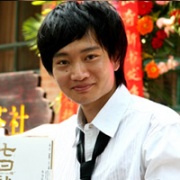Debunking Yoshikazu Kato
- By Du Jianguo
 0 Comment(s)
0 Comment(s) Print
Print E-mail
China.org.cn, July 17, 2011
E-mail
China.org.cn, July 17, 2011
|
|
|
Yoshikazu Kato [file photo] |
Yoshikazu Kato, born in 1984 in Japan, graduated from Peking University and has written articles for several influential Chinese newspapers and publications, including the Global Times, Oriental Outlook Magazine, Beijing News. He is also a regular columnist for the Chinese edition of the Financial Times. He boasts of his good relationships with officials at the Ministry of Foreign Affairs, the CPC Central Committee's Publicity Department, the Ministry of Public Security, the State Council Information Office and other central leaders. But despite his impressive resume and contacts, Yoshikazu's opinions on China's high-speed railway are contradictory and ill-informed.
Back in February, Kato wrote in a Financial Times column that China's high-speed rail was doomed to be a failure because it "lacks respect for economic laws" and therefore would be difficult to make any money. His solution was for China to privatize its railways. According to Kato, economic law dictates that privatization is the key to the railway's success.
But while privatization may be a law in economics, it isn't necessarily a law in the real world. In the late 1990s, when the UK privatized its railways, a host of problems arose. Discontent over more expensive fares and frequent delays led the government to gradually re-nationalize the network.
Kato later argued against privatization in another Financial Times column. This time, he was writing about the Fukushima nuclear plant disaster, which he argued was made worse because of Tokyo Electric Power Company's "selfishness," "incompetence" and "confusing" in dealing with the crisis. He said that nationalizing nuclear power and the country's "most important sectors must be under the control of the government."
More recently, Kato wrote that profitability was not a problem for China's high-speed railway. Suddenly, the railway is no longer doomed! He dispels notions that the railway cannot compete with airlines: "The problem of high-speed rail is not that it is less competitive, but rather the competitiveness is too strong." He points out that the Beijing-Tianjin line lost 700 million yuan in its first year, but since the opening of a new subway line [that connects to the train station] in Beijing, the inter-city railway has become profitable.
He concludes that "high-speed rail has a rosy future." At this point, one wonders whether Kato holds any position regarding China's high-speed rail. To write an argument, regardless of whether it is right or wrong, there should at least be no contradictions. Kato does not deserve the attention and credibility he gets.
(This article was written in Chinese and translated by Li Huiru.)
Opinion articles reflect the views of their authors, not necessarily those of China.org.cn







Go to Forum >>0 Comment(s)